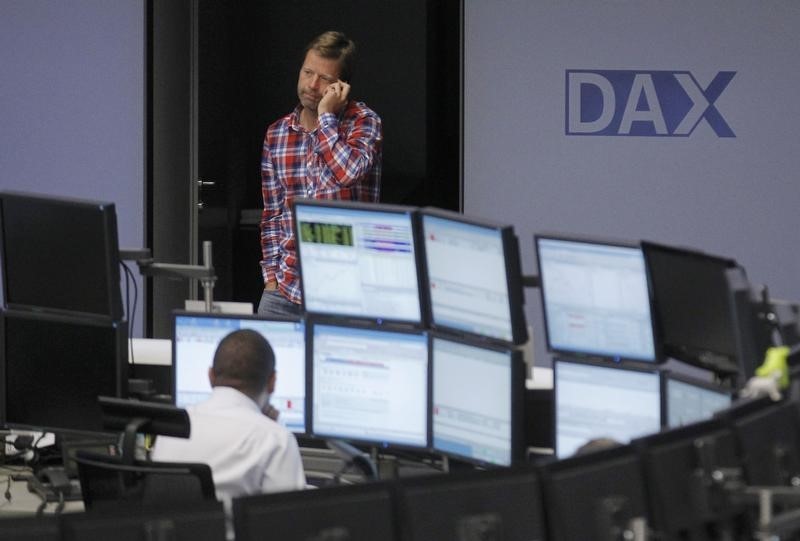Investing.com - European stocks opened lower on Wednesday, as investors remained cautious despite a global rebound in market sentiment, seeing as tensions with North Korea could possibly resurface at any moment.
During European morning trade, the EURO STOXX 50 eased 0.08%, France’s CAC 40 slipped 0.12%, while Germany’s DAX 30 fell 0.18% by 03:45 a.m. ET (07:45 GMT).
Market sentiment was still midly supported as Hurricane Irma appeared to have caused less damage than feared and in the absence of any new provocations from North Korea.
Irma, which had hammered the Caribbean late last week andwas one of the most powerful Atlantic hurricanes, weakened to a tropical depression, easing concerns over the severity of its financial impact.
Separately, market participants seemed to shrug off North Korea’s rejection of sanctions imposed by the U.N. Security Council.
The Security Council voted unanimously on Monday to step up sanctions on the peninsula, in response to its sixth nuclear test.
U.S. President Donald Trump said Tuesday that the U.N. sanctions were a "very small step" and "nothing compared to ultimately what will have to happen" to combat the regime's nuclear program.
Financial stocks were mostly higher, as French lenders BNP Paribas (PA:BNPP) and Societe Generale (PA:SOGN) rose 0.20% and 0.39%, while Germany's Commerzbank (DE:CBKG) inched up 0.04%.
Among peripheral lenders, Italy's Intesa Sanpaolo (MI:ISP) and Unicredit (MI:CRDI) climbed 0.83% and 0.79% respectively, while Spanish banks BBVA (MC:BBVA) and Banco Santander (MC:SAN) added 0.26% and 0.22%.
Volkswagen (DE:VOWG_p) added to gains, with shares up 0.48% after the German automaker announced plans to step up its shift to electric cars by investing more than €20 billion in zero-emission vehicles by 2030.
French rival Peugeot SA (PA:PEUP) added 0.13%. The company's Chief Executive Carlos Tavares said on Tuesday that European policymakers were responsible for the fate of 800 jobs at Opel's engine testing facility, seeing as many are under threat from a regulatory push to promote electric cars.
Elsewhere, the tech sector was expected to be in focus on Wednesday, a day after Apple (NASDAQ:AAPL) unveiled its iPhone 8 models, as well as the highly-anticipated iPhone X. There was some disappointment however amid disappointment the tech giant will not begin taking orders on the iPhone X model until October.
Finnish phonemaker Nokia Oyj (HE:NOKIA) shares were down 0.29% in early European trade.
In London, FTSE 100 dropped 0.65%, as the previous session's strong UK inflation data continued to boost demand for the pound.
UK lenders were broadly lower, as the Royal Bank of Scotland (LON:RBS) edged down 0.12% and Lloyds Banking (LON:LLOY) slid 0.60%, while Barclays (LON:BARC) dropped 0.63% and HSBC Holdings (LON:HSBA) tumbled 1.22%.
Mining stocks added to losses on the commodity-heavy index. Shares in Rio Tinto (LON:RIO) declined 1.04% and Glencore (LON:GLEN) slumped 1.66%, while BHP Billiton (LON:BLT) retreated 1.67%.
EasyJet PLC (LON:EZJ) was one of the top performers on the index, with shares up 1.17% following news the low cost airline will allow customers to use its website to book long-haul flights with other carriers.
In the U.S., equity markets pointed to a lower open. The Dow Jones Industrial Average futures pointed to a 0.14% fall, S&P 500 futures signaled a 0.17% loss, while the Nasdaq 100 futures indicated a 0.23% slide.
